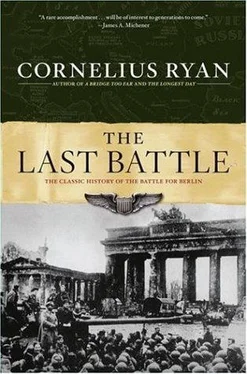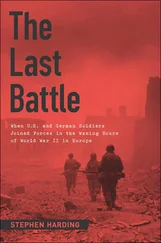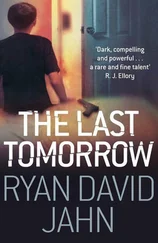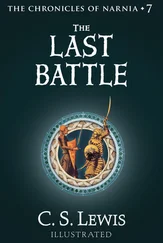Siegmund and Margarete Weltlinger, both in their late fifties, were hiding in a small, ground-floor apartment in Pankow. A family of Christian Scientists, the Möhrings, risking their own lives, had taken them in. It was crowded. The Möhrings, their two daughters and the Weltlingers all lived together in a two-room flat. But the Möhrings shared their rations and everything else with the Weltlingers and had never complained. Only once in many months had the Weltlingers dared venture out: an aching tooth prompted them to take the chance and the dentist who extracted it accepted Margarete’s explanation that she was “a visiting cousin.”
They had been lucky up to 1943. Although Siegmund was expelled from the stock exchange in 1938, he was asked soon afterward to take over special tasks with the Jewish Community Bureau in Berlin. In those days the bureau, under the leadership of Heinrich Stahl, registered the wealth and properties of Jews; later it tried to negotiate with the Nazis to alleviate the sufferings of Jews in concentration camps. Stahl and Weltlinger knew that it was only a question of time before the bureau was closed—but they bravely continued their work. Then, on February 28, 1943, the Gestapo closed down the bureau. Stahl disappeared into the Theresienstadt concentration camp and the Weltlingers were ordered to move to a sixty-family “Jews’ house” in Reinickendorf. The Weltlingers stayed in the Reinickendorf house until dark. Then they removed the Star of David from their coats and slipped out into the night. Since then they had lived with the Möhrings.
For two years the outside world for them had been only a patch of sky framed by buildings—plus a single tree which grew in the dismal courtyard facing the apartment’s kitchen window. The tree had become a kind of calendar of their imprisonment. “Twice we’ve seen our chestnut tree decked out with snow,” Margarete told her husband. “Twice the leaves have turned brown, and now it’s blooming again.” She was in despair. Would they have to spend yet another year in hiding? “Maybe,” Margarete told her husband, “God has forsaken us.”
Siegmund comforted her. They had a lot to live for, he told her: their two children—a daughter, seventeen, and a son, fifteen—-were in England. The Weltlingers had not seen them since Siegmund had arranged to get them out of Germany in 1938. Opening a Bible he turned to the Ninety-first Psalm and slowly read: “A thousand shall fall at thy side, and ten thousand at thy right hand; but it shall not come nigh thee.” All they could do was to wait. “God is with us,” he told his wife. “Believe me, the day of liberation is at hand.”
In the previous year, more than four thousand Jews had been arrested by the Gestapo in the streets of Berlin. Many of these Jews had risked detection because they were unable to stand confinement any longer.
Hans Rosenthal, twenty, was still hiding in Lichtenberg, and was determined to hold out. He had spent twenty-six months in a cubicle barely six feet long and five feet wide. It was actually a kind of small tool shed attached to the back of a house owned by an old friend of Hans’s mother. Rosenthal’s existence up to now had been perilous. His parents were dead and at sixteen he was put into a labor camp. In March of 1943 he escaped and, without papers, took a train to Berlin and refuge with his mother’s friend. There was no water and no light in his cell-like hiding place and the only toilet facility available was an old-fashioned chamber pot. He emptied that at night during the air raids, the only time he dared leave his hiding place. Except for a narrow couch, the cubicle was bare. But Hans did have a Bible, a small radio and, on the wall, a carefully marked map. Much as he hoped for the Western Allies, it seemed to him that the Russians would capture Berlin. And that worried him, even though it would mean his release. But he reassured himself by saying over and over, “I am a Jew. I have survived the Nazis and I’ll survive Stalin, too.”
In the same district, in a cellar in Karlshorst, Joachim Lipschitz lived under the protection of Otto Krüger. On the whole it was quiet in the Krüger cellar but sometimes Joachim thought he heard the distant boom of Russian guns. The sound was soft and muttering, like a bored audience applauding with gloved hands. He put it down to imagination—the Russians were much too far away. Still he was familiar with Russian cannonading. The son of a Jewish doctor and a Gentile mother, he had been inducted into the Wehrmacht. In 1941 on the eastern front, he had lost an arm on the battlefield. But service to Germany had not saved him from the crime of being a half-Jew. In April, 1944, he had been marked for internment in a concentration camp. From that moment on, he had been in hiding.
The 27-year-old Joachim wondered what would happen now as the climax approached. Every night the Krügers’ eldest daughter, Eleanore, came down to the basement to discuss the outlook. They had been sweethearts since 1942 and Eleanore, making no secret of their friendship, had been disqualified from attending a university because of her association with an “unworthy” person. Now they longed for the day when they could marry. Eleanore was convinced that the Nazis were militarily bankrupt and that the collapse would come soon. Joachim believed otherwise: the Germans would fight to the bitter end and Berlin was sure to become a battlefield—perhaps another Verdun. They also disagreed about who would capture the city. Joachim expected the Russians, Eleanore the British and Americans. But Joachim thought they should be prepared for any eventuality. So Eleanore was studying English—and Joachim was mastering Russian.
None waited in more anguish for Berlin to fall than Leo Sternfeld, his wife Agnes and their 23-year-old daughter Annemarie. The Sternfelds were not in hiding, for the family was Protestant. But Leo’s mother was Jewish, so he was categorized by the Nazis as a half-Jew. As a result, Leo and his family had lived in a torment of suspense all through the war; the Gestapo had toyed with them as a cat with a mouse. They had been allowed to live where they wished, but hanging over them always was the threat of arrest.
The danger had grown greater as the war had come nearer, and Leo had struggled to keep up the women’s spirits. The night before, a bomb had demolished the post office nearby, but Leo was still able to joke about it. “You won’t have to go far for the mail any more,” he told his wife. “The post office is lying on the steps.”
As he left their home in Tempelhof on this March morning, Leo Sternfeld, the former businessman now drafted by the Gestapo to work as a garbage collector, knew that he had put off making his plans until too late. They could not leave Berlin, and there was no time to go into hiding. If Berlin was not captured within the next few weeks they were doomed. Leo had been tipped off that the Gestapo planned to round up all those with even a drop of Jewish blood on May 19.
• • •
Far to the west, in the headquarters of the British Second Army at Walbeck, near the Dutch border, the senior medical officer, Brigadier Hugh Glyn Hughes, tried to anticipate some of the health problems he might encounter within the coming weeks—especially when they reached Berlin. Secretly he feared outbreaks of typhus.
Already a few refugees were passing through the front lines, and his assistants had reported that they carried a variety of contagious diseases. Like every other doctor along the Allied front, Brigadier Hughes was watching developments very carefully; a serious epidemic could be disastrous. Tugging at his moustache, he wondered how he would cope with the refugees when the trickle became a flood. There would also be thousands of Allied prisoners of war. And God only knew what they would find when Berlin was reached.
Читать дальше












